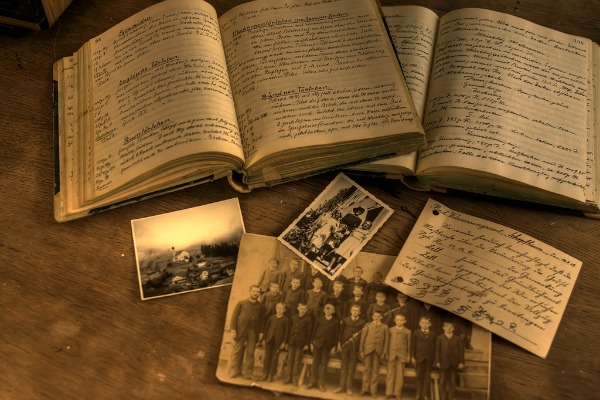7 Unexpected Places to Discover Clues to Your Family History
As genealogists, we’re always searching for clues about our ancestors. Some of the first documents we search for are census records, birth and death certificates, obituaries and other commonly used sources. However, there are many, many other places you can search to find clues to help you breakthrough your brick walls.
Check out some unexpected places to find clues to your family history:

Image: pixagraphic, Flickr
1. Fraternal organizations
Have you found acronyms or symbols on your ancestor’s tombstone or obituary? Maybe a strange insignia on a pin or dish? It’s possible your ancestor was a member of a fraternal organization. Fraternal organization records may include meeting minutes, newsletters, membership applications and even death benefit claim forms.
2. Family bibles
Family bibles are often passed down from generation to generation. Within these pages, you may find the names of relatives, birth dates, baptism dates and death dates. Often the margins of the pages will have notes written by your relatives too!
3. Funeral sign-in books
Typically, when attending a funeral, guests are asked to sign their names in a funeral book. These books are then given to the family at the end of the funeral. Since family and friends, both near and far, will attend a loved one’s funeral, these books can potentially host a wealth of genealogical clues.
4.The back of framed photos
Do you have old family photos displayed in picture frames? Take some time to check out the backs of these photos. People often write notes on the back, including the names of the people in the photo, date and place the photo was taken and even the name of the person who took the picture.
5. City directories
This often overlooked resource can give you clues to help you track down the location of your ancestors. For your hard to find relatives, try searching for possible neighbors. You can then use that information to cross reference other resources, such as the census, to track down your elusive ancestor.
6. Family cookbooks
If your family immigrated to another country and changed their name, you may be having trouble tracing their country of origin. Family cookbooks may offer clues to where your family came from. Examine the recipes and see if any of them are distinctive dishes from other countries. For example, if you find several traditional German dishes, then perhaps your family immigrated from Germany. It may even be possible to narrow your search further if the dish is a specialty of a particular area.
7. Special census records
Special census schedules can help supplement other sources and point you into new directions. These include agricultural schedules, mortality schedules and slave schedules.
What’s the most unexpected place you have found family history information?







 Genealogy Discussions
Genealogy Discussions Genealogy Projects
Genealogy Projects Popular Genealogy Profiles
Popular Genealogy Profiles Surnames
Surnames The Geni Blog
The Geni Blog The World Family Tree
The World Family Tree